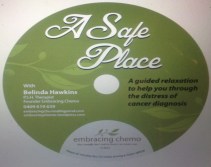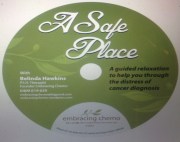My uncle was diagnosed with mesothelioma last week. Fit, youthful and full of energy. Just slightly short of breath. And after the disbelief, I find that I am angry. And I am surprised it is not with the makers of the asbestos. It is instead with his doctors. Because when he asked if he had ten years, his respiratory physician said ‘no’. And then other doctors told him he had perhaps one year, maybe two. And couldn’t even look him in the eye. I ask you, what crystal ball do they have that we do not? Get another doctor I said.
Why crush a human spirit that is struggling to live through this diagnosis? Would it not be better to be more accurate when asked about life expectancy? Give some hope. ‘I honestly don’t know how long you’ve got, we don’t know how long any of us will live’ would be a good place to start. That’s the nature of being human, isn’t it. None of us know how long we’ve got. ‘Some people with this diagnosis live only a short time, while others live much longer’. An honest answer that gives the opportunity for hope. Because we are dealing with people, individuals, not statistics. And individuals vary so much. That’s how they get the statistics in the first place isn’t it. Because we are all so different.
I have lost count of the number of times I have heard of people given only a small number of months or years to live, who have outlived all expectations. Because they have something or someone to live for, because they have a different genetic make up, because they make different treatment decisions, because they add in complementary therapies, because they won’t take no for an answer. To tell someone they have only x years to live, seems little more than the very essence of witch doctoring itself. Which is strange for doctors who pride themselves on their science, isn’t it. For if entranced by the doctors words, what choice does a person have except to give up and die? If only they realised how many people give up when the doctor conveys no hope. And sending ourselves a message of ‘no hope’ just seems to shut things down all the more quickly.
But isn’t it incredible how life gives you just what you need, when you need it most? Only 18 hours before I heard of my uncle’s diagnosis I was lunching with a friend. And out of the blue she told me a story about someone she knows who has been living with mesothelioma for ten years now. And he has a real purpose for living. So living he is, despite his diagnosis. And with the power in this knowledge, I was so relieved to be able to arrange for my uncle to chat with him. To counteract the sentence just delivered. Because knowing someone else has done it, means it’s possible, doesn’t it. And hope is one of the strongest life-supporting emotions we have…



